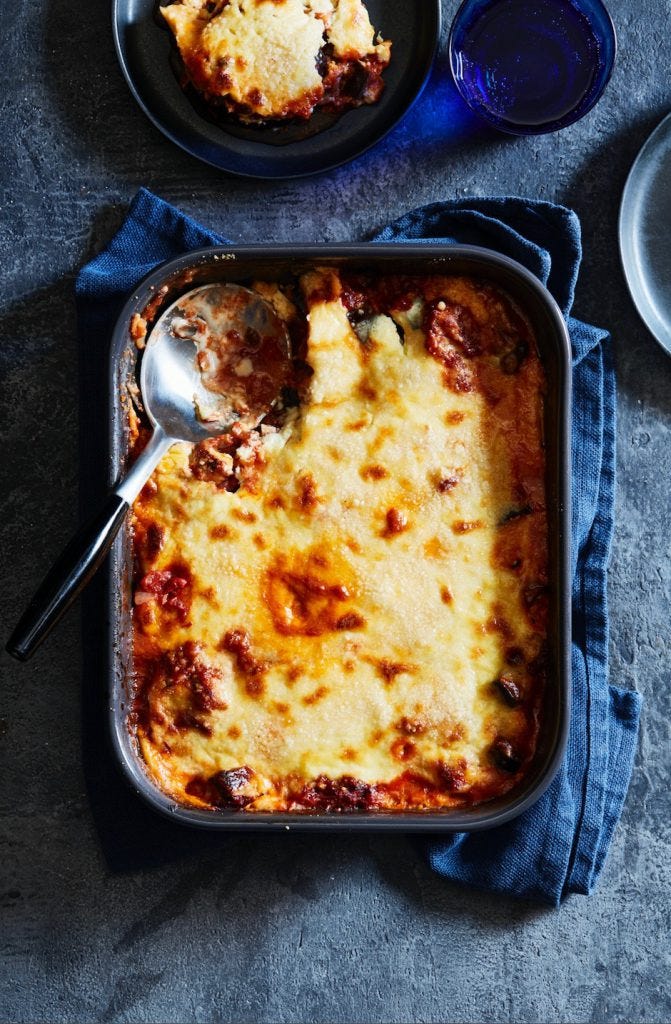Mushroom Moussaka & New Traditions

It's September, which means it's time for another recipe from Leah Koenig, my go-to source for the Jewish holidays and beyond. (Remember her fattoush? I make that throughout tomato season.) I'm pleased to let you know that this year, Leah herself is making a cameo on DALS, talking about a favorite topic of mine (family traditions) along with what is so…




